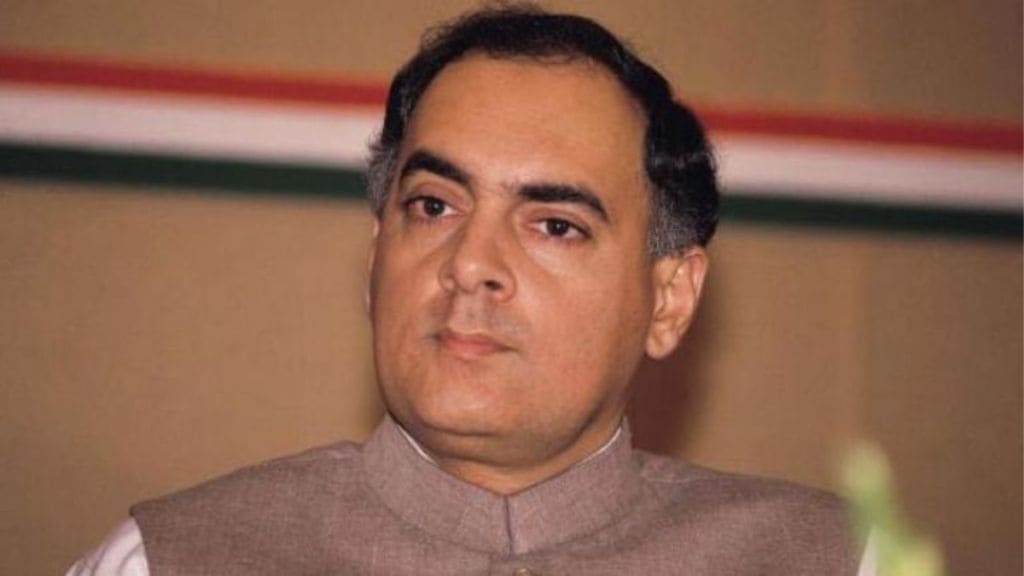The nation observes the 33rd death anniversary of former Prime Minister Rajiv Gandhi on May 21. In 1991, on this unfateful night, he was assassinated by a suicide bomber during an election rally in Sriperumbudur, Tamil Nadu.
Rahul Gandhi posted a childhood picture of him and his father on X, formerly known as Twitter, as a tribute. In the picture, Rajiv Gandhi is seen with his hands on Rahul’s shoulder. “Father, Your dreams, my dreams, Your aspirations, my responsibilities. Your memories, today and always, always in my heart,” he wrote in the post.
Prime Minister Narendra Modi also paid tribute to the late former prime minister. The Prime Minister posted on X and wrote, “On his death anniversary, my tributes to our former PM Shri Rajiv Gandhi Ji.”
Rajiv Gandhi’s short-lived political career
Rajiv Gandhi served as the Prime Minister of India from 1984 to 1989, which marked a period of significant change for the country. He was the youngest person ever to hold the office. He was 46-years-old and was campaigning for elections when a suicide bomber assassinated him. A week of mourning was declared after his death.
The attacker belonged to the Liberation Tigers of Tamil Eelam (LTTE) and targeted Gandhi at a rally in Sriperumbudur. He led the Congress Party to a massive landslide victory soon after his mother, former Prime Minister Indira Gandhi, was killed by her Sikh bodyguards over Operation Blue Star.
In 1987, Rajiv Gandhi sent Indian peacekeeping forces to Sri Lanka to help restore peace during the civil war between the LTTE and the Sri Lankan government. The LTTE sought a separate Tamil homeland for Sri Lankan Tamils, who faced persecution in the Sinhalese-majority island nation. However, Rajiv Gandhi’s decision was heavily criticised in India and abroad. It is believed that the LTTE targeted him because of this decision.
Rajiv Gandhi assassination
While campaigning for the Lok Sabha election in Sriperumbudur, Gandhi left his motorcade to deliver a speech. A female assassin approached him, pretending to be a well-wisher. Some accounts say she detonated the RDX while trying to touch his feet, while others claim it exploded as she garlanded him. The blast, whoch accurred around 10.20 pm, also killed at least 14 other people, including a senior police officer.
Maradadam Chandrashekhar, the parliamentary candidate from Sriperumbudur who was accompanying Gandhi, survived the blast. The suicide bomber was later identified as Kalaivani Rajaratnam.
After the assassination, the remaining two phases of the Lok Sabha elections were postponed until the following month by the Chief Election Commissioner at the time, T.N. Seshan. India’s military and paramilitary forces were put on “red alert” as gangs roamed the streets of New Delhi and other cities, seeking scapegoats, according to The New York Times.
In 1999, the Supreme Court upheld the conviction of seven individuals for Gandhi’s assassination. Initially, 26 were sentenced to death by a TADA court in 1998, but by 1999, only four faced death sentences, later commuted to life terms. In 2022, all seven convicts were released. Santhan passed away in February 2024, and Murugan, Jayakumar, and Payas returned to Sri Lanka in April.
National Anti-Terrorism Day
Founded by the V.P. Singh government in memory of Rajiv Gandhi, National Anti-Terrorism Day in India aims to educate people about the adverse impacts of terrorism and violence on society and the nation. It also encourages peaceful living, unity, and harmony.
The day conveys India’s determination to fight terrorism in all its forms to the world. On May 21, various organizations and educational institutions organize debates, discussions, and seminars focused on the impact of terrorism.

